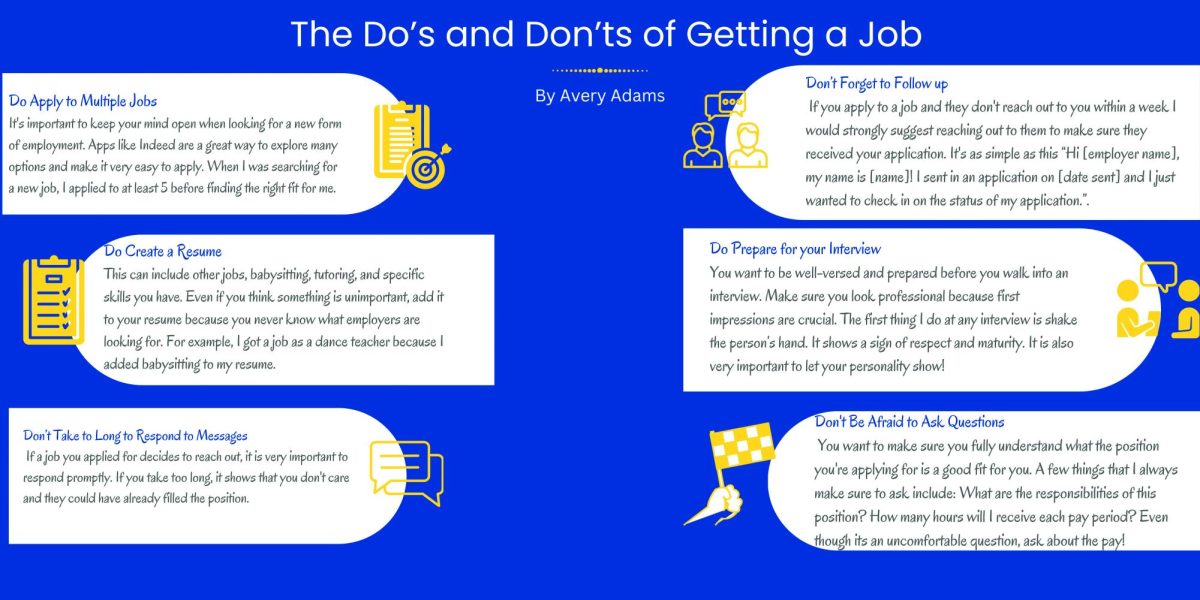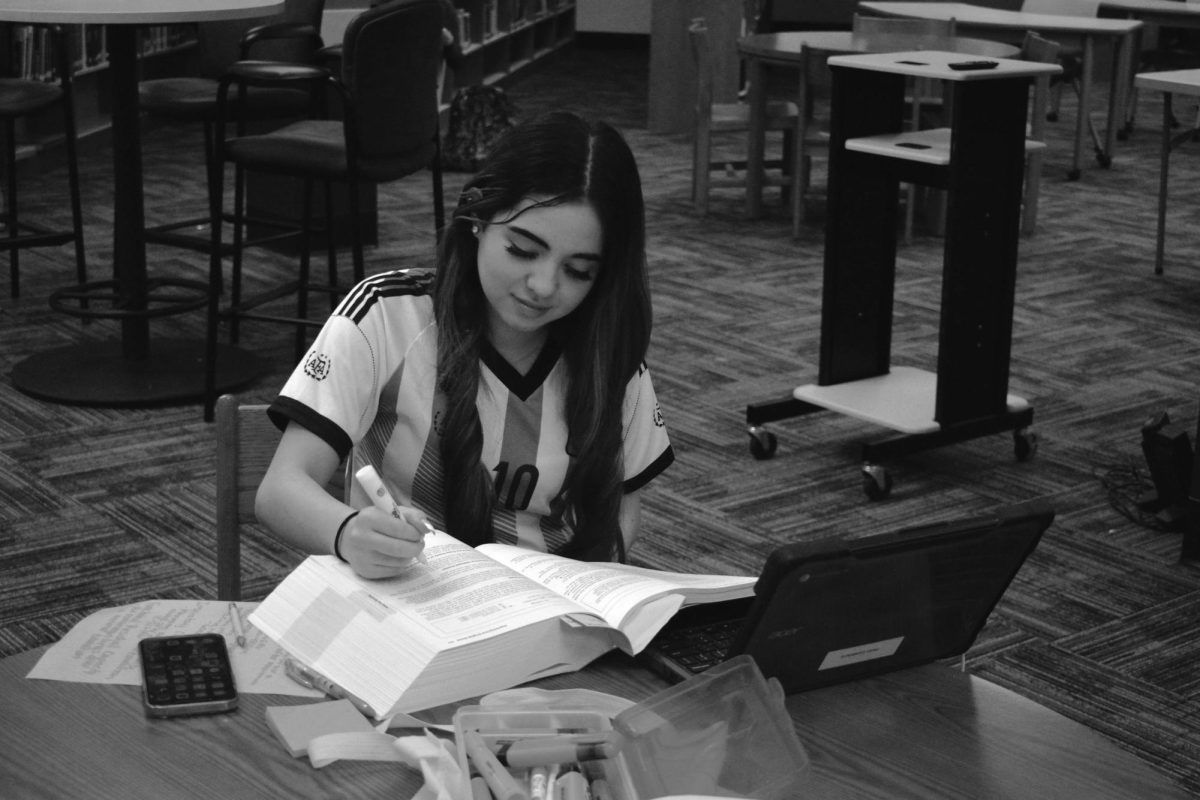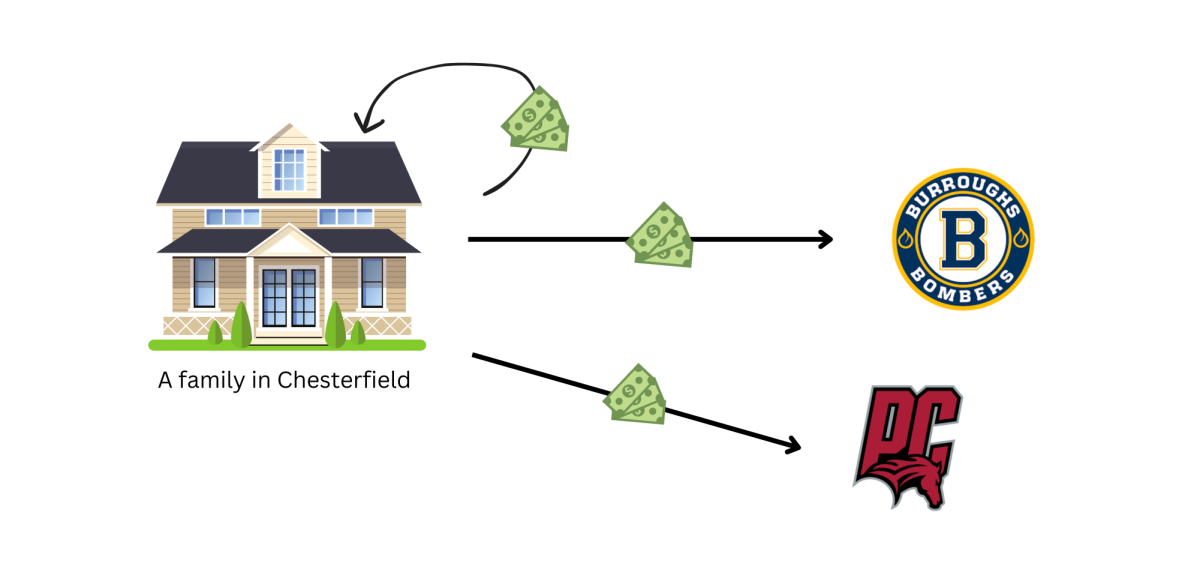Four hours of my Sunday night were spent cramming for yet another test in an AP class, along with several other tests, leading me to an extremely stressful Monday.
The day passed, the tests ended and little was remembered about any of the subjects. When my friends asked me what to study, not only could I not tell them what I remembered, but I couldn’t recall much at all of the subject matter.
I pondered this all day: If I couldn’t remember things about a topic I had studied yesterday and taken a test over today, how was I learning anything? For that matter, was I learning anything at all?
With this, I started thinking about what made a semester “successful” from an academic standpoint. My first thoughts jumped to my GPA. Had I kept it high enough to be considered by the colleges at the top of my list?
As I was reflecting on my semester, I never simply thought: What have I learned? Never once did I wonder how what I’ve studied in class will help me. The only time I thought about that is when I was dreading studying a math concept I am convinced that I will never need in real life.

We attend school to learn; yet, do we really remember anything that we learn throughout the year?
The answer in my opinion is clearly “no.” I consider myself a diligent student, and I am extremely guilty of this practice. I consistently memorize material only to forget it by the end of the week. I am guilty of playing “the game of school,” getting by with good grades without truly learning the content for the long term.
Yes, finals provide a challenge, as concepts from the whole semester are tested. Yet, my normal habits continue again. I cram like crazy, yet as break begins, all the knowledge that I picked up throughout the semester seems to vanish.
But how can we help this? When students try to focus more on learning content in classes, their GPAs tend to start falling, as they stop playing the game. If they start embracing the content and whole-heartedly begin to understand it, they often have less time and brain power to hold the facts they need to regurgitate come test time. But in the big scheme of things, learning content is far more important and helpful to students in the future than a silly grade.
Students need to stop focusing so much on the small percentage that represents a whole semester, year or whole high school career full of work. How can you tell me that the tons and tons of hours of work I have put into school can be squished down to one small number?
No, what students need to focus on is what they truly learn. Though many students have a good GPA, they do not truly know much about what is going on in our world or even how our country works. A good GPA may help a student get into college, but it will not help them once enrolled in college. Truly learning is undoubtedly more important than continually memorizing trivial facts.
It’s not easy to try to learn things in school in this system. It almost seem as though those who try are punished. But if we all start trying to begin learning instead of memorizing and forgetting, the system can eventually change.
No one is solely responsible for the faults of our current educational system, as the goal of teachers is not to cause students unneeded stress or to foster an environment of cramming information. It simply seems to be the only logical, widespread way to teach and measure success of schools everywhere.
While I’m not suggesting to completely ignore the societal standards set by the educational field, the next time you’re cramming to memorize seemingly meaningless facts, remember why you’re in school: to learn.








